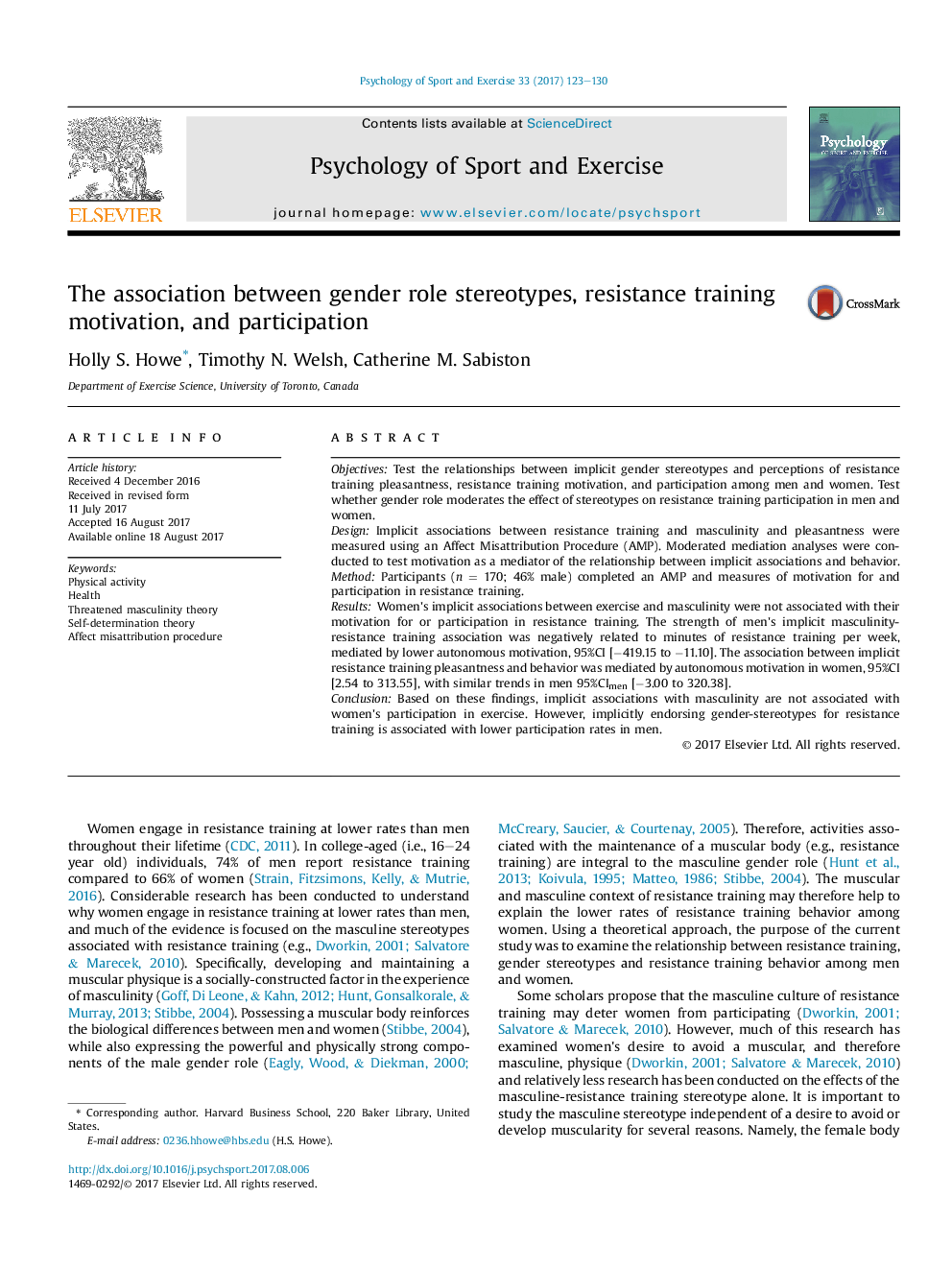| کد مقاله | کد نشریه | سال انتشار | مقاله انگلیسی | نسخه تمام متن |
|---|---|---|---|---|
| 5036527 | 1472094 | 2017 | 8 صفحه PDF | دانلود رایگان |
- Men who associate RET with masculinity are less autonomously motivated for RET.
- Men who associate RET with masculinity participate in RET at lower rates.
- Women are unaffected by gender stereotypes surrounding exercise.
- Implicit-explicit concordance for exercise pleasantness was demonstrated.
ObjectivesTest the relationships between implicit gender stereotypes and perceptions of resistance training pleasantness, resistance training motivation, and participation among men and women. Test whether gender role moderates the effect of stereotypes on resistance training participation in men and women.DesignImplicit associations between resistance training and masculinity and pleasantness were measured using an Affect Misattribution Procedure (AMP). Moderated mediation analyses were conducted to test motivation as a mediator of the relationship between implicit associations and behavior.MethodParticipants (n = 170; 46% male) completed an AMP and measures of motivation for and participation in resistance training.ResultsWomen's implicit associations between exercise and masculinity were not associated with their motivation for or participation in resistance training. The strength of men's implicit masculinity-resistance training association was negatively related to minutes of resistance training per week, mediated by lower autonomous motivation, 95%CI [â419.15 to â11.10]. The association between implicit resistance training pleasantness and behavior was mediated by autonomous motivation in women, 95%CI [2.54 to 313.55], with similar trends in men 95%CImen [â3.00 to 320.38].ConclusionBased on these findings, implicit associations with masculinity are not associated with women's participation in exercise. However, implicitly endorsing gender-stereotypes for resistance training is associated with lower participation rates in men.
Journal: Psychology of Sport and Exercise - Volume 33, November 2017, Pages 123-130
